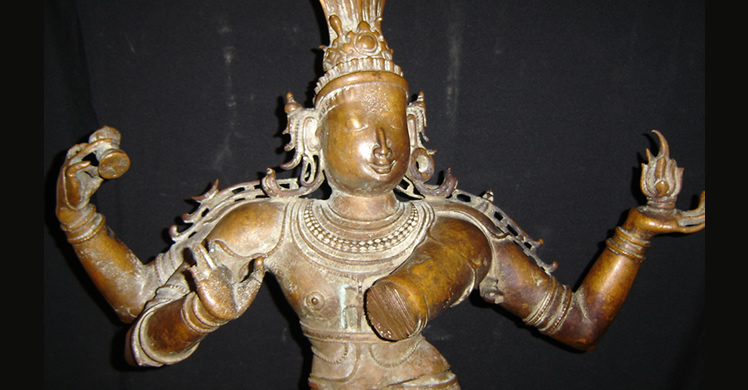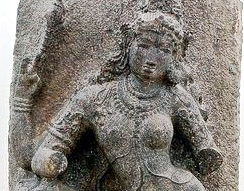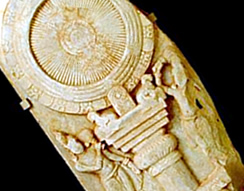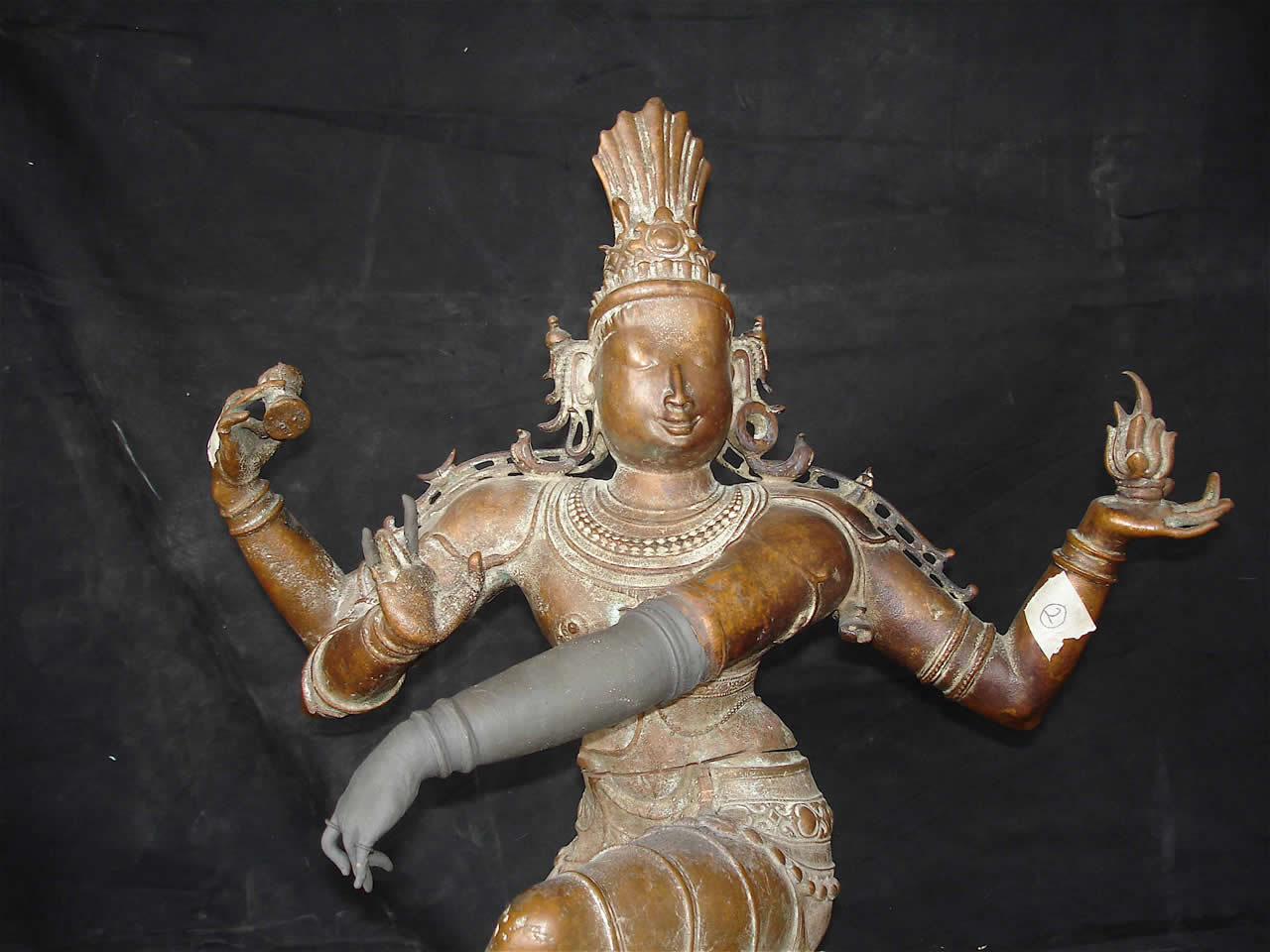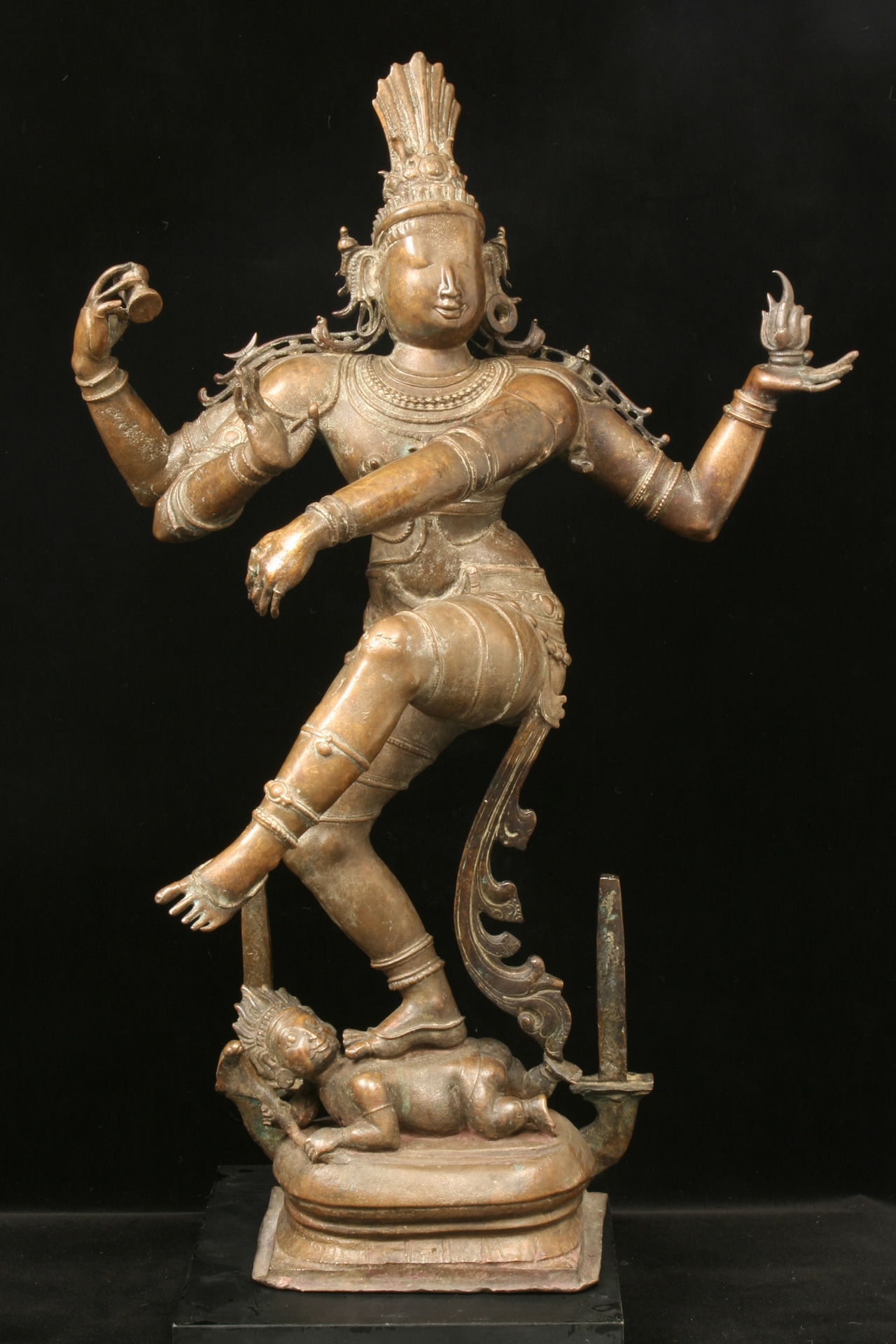ICE HSI, Tamil Nadu Police arrest major India-based artifact smugglers
MUMBAI, INDIA – Indian authorities arrested a father and son Tuesday accused of smuggling and dealing in stolen Indian cultural artifacts for more than a decade. The arrests are the result of an ongoing investigation under the auspices of Operation Hidden Idol. U.S. Immigration and Customs Enforcement's (ICE) Homeland Security Investigations (HSI) special agents from the HSI New York and the attaché Office in New Delhi assisted police officers from Tamil Nadu's Economic Crime Division's Idol Wing (Idol Wing) in making the arrest.
Vallabh Prakash, 86, and his son Aditya Prakash, 47, both were arrested at their homes in Mumbai, India. Each is being charged by Indian authorities with smuggling idols stolen from temples in India. Originally from Nepal, the Prakash family settled in Mumbai in 1959.
The Tamil Nadu's Economic Crime Division's Idol Wing requested the assistance of HSI New York's cultural property unit to help identify some of the individuals responsible for supplying major stolen works to Subhash Kappor of Art of the Past in New York. HSI special agents also assisted in identify who had stolen and smuggled the recently repatriated religious stone idol of Ardhanari (an androgynous deity composed of Shiva and his consort Shakthi).
The idol had been documented at the Siva Temple, Sri Vriddhachalesvara, Vriddhachalam, South Arcot, Tamil Nadu India as far back as 1958 by the French Institute of Pondicherry. HSI has determined that the piece had been stolen sometime around 2002 and replaced with a modern forgery. The theft went undetected until HSI's Operation Hidden Idol brought attention to Kapoor's alleged misdeeds at which time dealers, collector's, religious worshippers and museums began to reexamine their idol collections.
Almost three years ago, a police report was first filed identifying that the Ardhanari had been stolen.
HSI special agents were able to identify the smugglers of the Ardhanari to be the Prakashs, a family that owns and operates Indo-Nepal Art Centre, a gallery in Mumbai. In 2002, the Prakashs offered the stolen Ardhanari to Kapoor at Art of the Past and he purchased it and together they had it smuggled to the United States. Kapoor proceeded to sell the idol with false paperwork to the Art Gallery of New South Wales in 2004.
After identifying this theft and then many others attributed to this network, HSI special agents worked with Tamil Nadu authorities to arrest Dean Dayal, and nine of his cohorts in Chennai earlier this year. Dean Dayal appears to have been the mastermind on the ground behind the actual thefts at the temples, while the Prakashs, appear to have been the "brokers" or the individuals who would sell the stolen idols wholesale and then smuggle them out of India. The arrests of Aditya and Valab Prakash is something authorities had been working toward together for close to two years. These arrests are unique and highlight the success of Operation Hidden Idol. This is one of the first U.S. based cultural property investigations where via partnering up with foreign law enforcement the investigators have been able to arrest the thieves, brokers/smugglers, dealers/sellers, and those who were providing false provenances to disguise the pieces. And the investigation is still ongoing.
As part of the their examination into these smugglers HSI agents went on to identify dozens upon dozens of additional illegal artifacts stolen, sold and trafficked by Indo-Nepal Art Centre over the past twenty years. These articles include a Pratyangira (Hindu Goddess associated with Shakti) and a pair of Dwara Palas (door guardians) All three idols were stolen, sold and smuggled via the Prakash's to Kapoor in 2002 and all three pieces were subsequently sold to the National Gallery of Australia were they are still on display.
HSI has recovered numerous illicit idols linked directly to this part of the vast transnational criminal organization have been traced to major museums and collectors both in the United States and around the world. On July 1, 2015, an anonymous collector of Asian antiquities voluntarily surrendered a stolen 11-12th century Chola bronze representing Saint Manikkavichavakar, looted from the Sivan Temple in Sripuranthan Village in Ariyalur District, Tamil Nadu in India.
The Idol Wing has also recovered an incredibly important, yet previously unidentified Shiva Nataraja. HSI special agents have been able to establish that this piece can be directly linked to the network identified here. This Shiva Nataraja idol had previously been stolen, cut, smuggled by the Prakashs to Kapoor in New York City where he had been trying to sell it for $2,500,000.00, or for the "special price of $2,000,000.00".
Besides these arrests and the arrest of Kapoor who is currently in jail in India, HSI is working in conjunction with the Manhattan District Attorney's office, and has arrested and obtained guilty pleas from Kapoor's sister, girlfriend and former business manager. As a result of Operation Hidden Idol, HSI has executed over twenty warrants and seized over 2,500 artifacts worth over $100 million. These artifacts have been sourced from countries all around the world. Some of these seized artifacts can be directly attributed to those involved in today's enforcement activity like a stone Murugan stolen from Thachur a village in Tamil Nadu.
"I would like to convey my deep sense of appreciation to HSI for the exceptional work done in locating and recovering the Tamil Saint's statue. It was stolen from the Sivan temple at the Sripuranthan village in Tamil Nadu, India and brought to the United States by an organized smuggling syndicate," said the Honorable Dnyaneshwar M. Mulay, ambassador consul general of India in New York. "I look forward to a lasting partnership between HSI and the government of India's law enforcement agencies to more actively pursue individuals and syndicates involved in these transnational crimes."
HSI's Operation Hidden Idol focuses on the activities of a former New York-based art dealer, Kapoor, who is currently in custody in India awaiting trial for allegedly looting tens of millions of dollars' worth of rare antiquities from several nations. The trails of looted artifacts have been traced all around the world. Within the past three months two domestic museums including Ball State University, the Honolulu Museum and Peabody Essex, partnered with HSI to surrender illicit cultural property stemming from Kapoor. Over the last four years, HSI special agents have executed a series of search warrants targeting Kapoor's Manhattan gallery, along with warehouses and storage facilities linked to the dealer.
HSI plays a leading role in criminal investigations that involve illegally importing and distributing cultural property, including illicit trafficking of cultural property, especially objects that have been reported lost or stolen. HSI International Operations, through its 64 attaché offices in 46 countries, works closely with foreign governments to conduct joint investigations, when possible.
HSI's specially trained investigators assigned to both domestic and international offices, partner with governments, agencies and experts to protect cultural antiquities. They also provide cultural property investigative training to law enforcement partners for crimes involving stolen property and art, and how to best enforce the law to recover these items when they emerge in the marketplace.
Since 2007, more than 7,200 artifacts have been returned to 30 countries, including paintings from France, Germany, Poland and Austria; 15th to 18th century manuscripts from Italy and Peru; as well as cultural artifacts from China, Cambodia and Iraq.
Learn more about HSI cultural property, art and antiquities investigations →
Members of the public who have information about suspected stolen cultural property are urged to call the toll-free HSI tip line at 1-866-DHS-2-ICE or to complete its online tip form.
Through ICE's Office of International Operations and the U.S. Department of State, Homeland Security Investigations (HSI) has 67 attaché offices in 48 countries around the world. HSI special agents work closely with foreign law enforcement agencies and through a robust network of specialized, vetted units known as Transnational Criminal Investigative Units.


